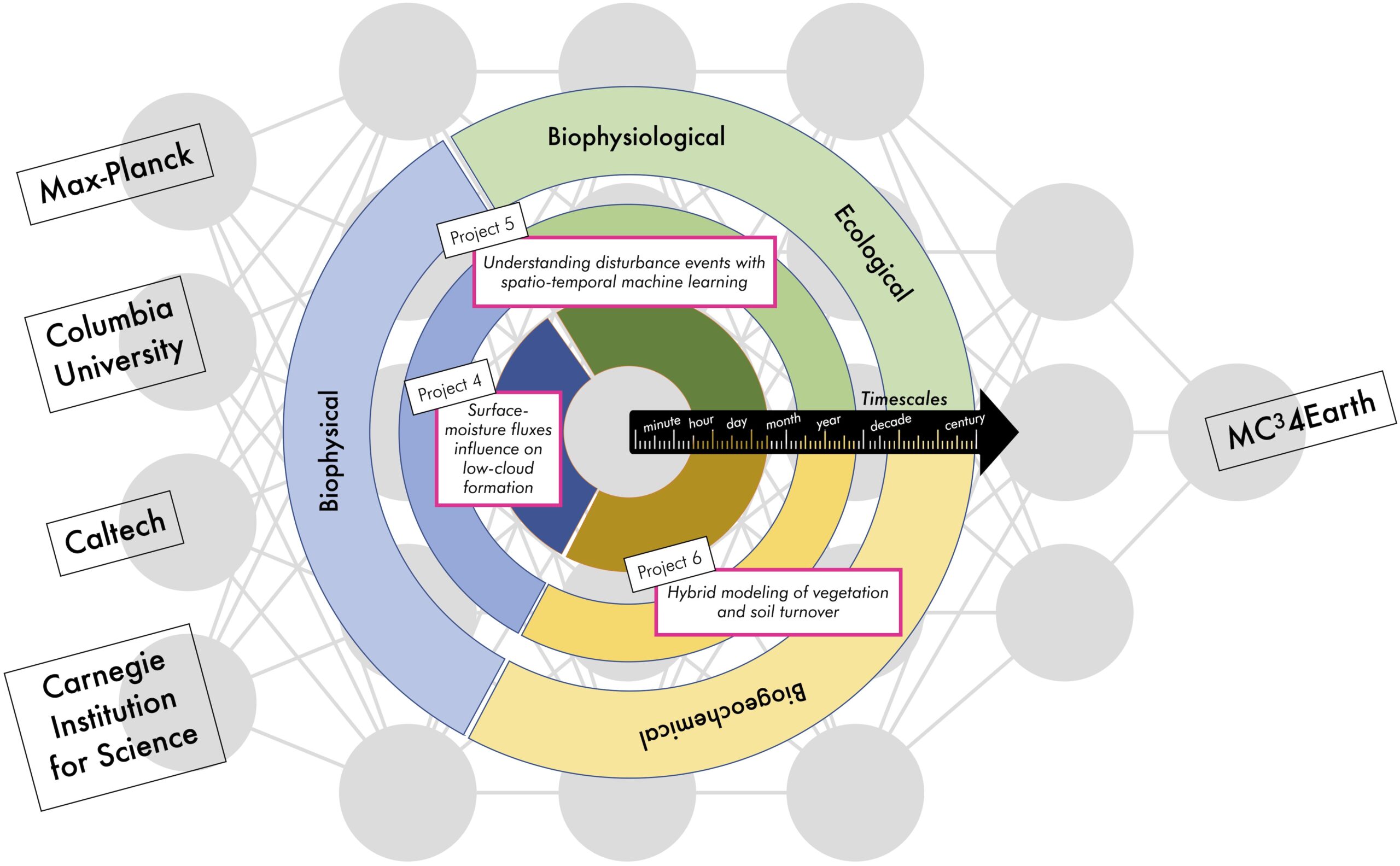The vast complexity of the Earth system requires integrating physical, chemical, ecological and human processes in solid, aqueous and gaseous phases across 17 orders of magnitude in space. No single institute can sufficiently address all aspects and develop an integrated picture alone. Moreover, there often has been a divide between theory and model-driven science on the one hand, and observation and data-driven science on the other hand, as well as between more physically and more biologically oriented Earth system disciplines.

Synergistic Goals
The synergy and added value of the envisioned center thus lies in at least three dimensions:
- Bridging theory- and data-driven modeling paradigms
- Bridging spatial scales and approaches from molecular to global scales
- Linking expertise in physical, chemical physiological, ecological and sustainability science
Research Areas
Research projects will encompass all aspects of land-atmosphere interaction and both domain science question driven and methodological research, for instance:
- Linking satellite retrievals of atmospheric trace gases and sun-induced fluorescence to biospheric activity
- Atmospheric trace substance emissions & deposition incl. aerosol formation and reactive nitrogen species
- Mechanistic hybrid and causal modeling of soil moisture – atmosphere – vegetation feedbacks
- Surface-Moisture Fluxes Influence on Low-Cloud formation
- Understanding disturbance events with spatio-temporal machine learning
- Hybrid modelling of vegetation and soil turnover, using ISRaD, FLUXCOM and Biomass observations
- Modelling ecosystem manipulation experiments with CMIP5/6 using causal and transfer learning approaches
Training and Mobility
Our center offers an unique exchange program between the participating institutes to foster the mobility of researchers and expose them to the diverse Earth system and machine learning expertise at the partner institutions and provide them with opportunities to advance their scientific, modeling, and data analytical skills.
We offer
- interdisciplinary PhD and PostDoc projects
- summer schools with hackathons in different partner locations
- fellowship programs for visits and exchanges between partners
- digital communication channels and code sharing

